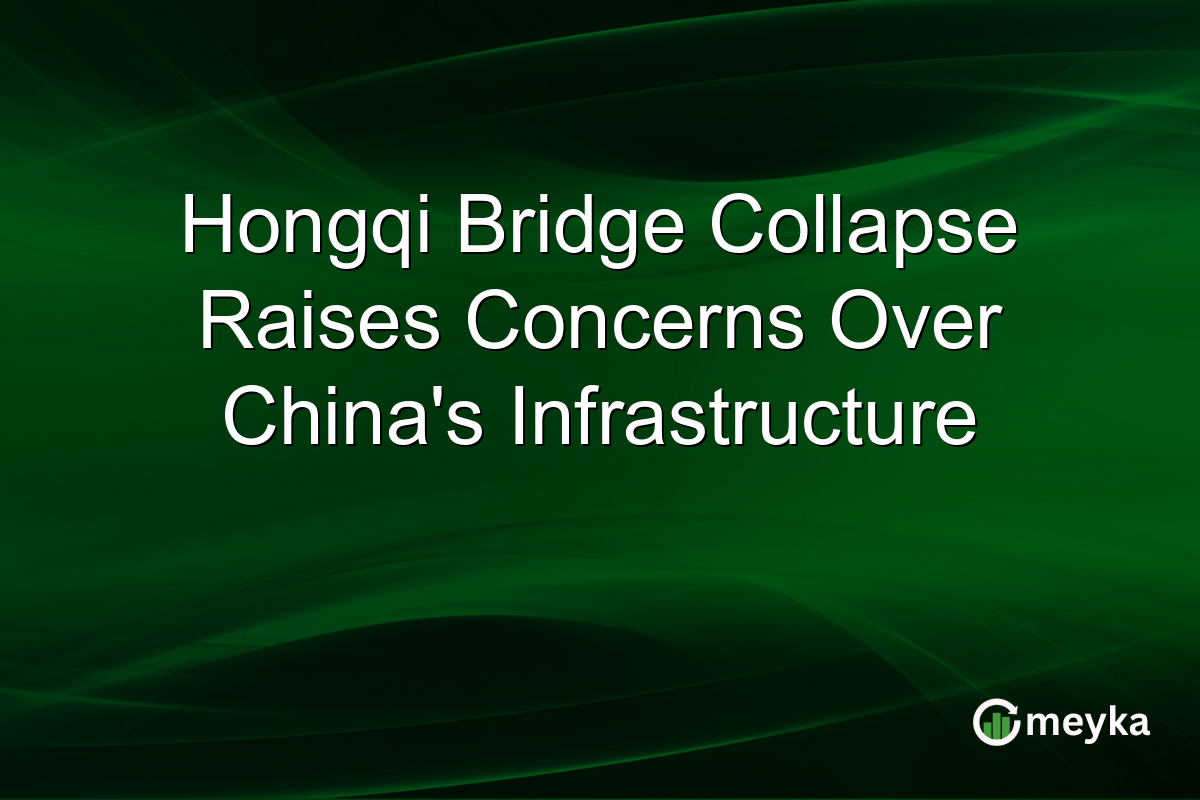Hongqi Bridge Collapse Raises Concerns Over China’s Infrastructure
The recent collapse of the Hongqi Bridge in China has put the spotlight on the nation’s infrastructure safety and financial risks. Just months after reopening, the bridge fell into the river, causing an uproar about the quality of engineering in China’s ambitious projects. With infrastructure central to China’s development strategy, this incident triggers critical discussions about investment risks and safety standards.
Continue Reading on Meyka
This article is available in full on our main platform. Get access to complete analysis, stock insights, and more.
Read Full Article →





